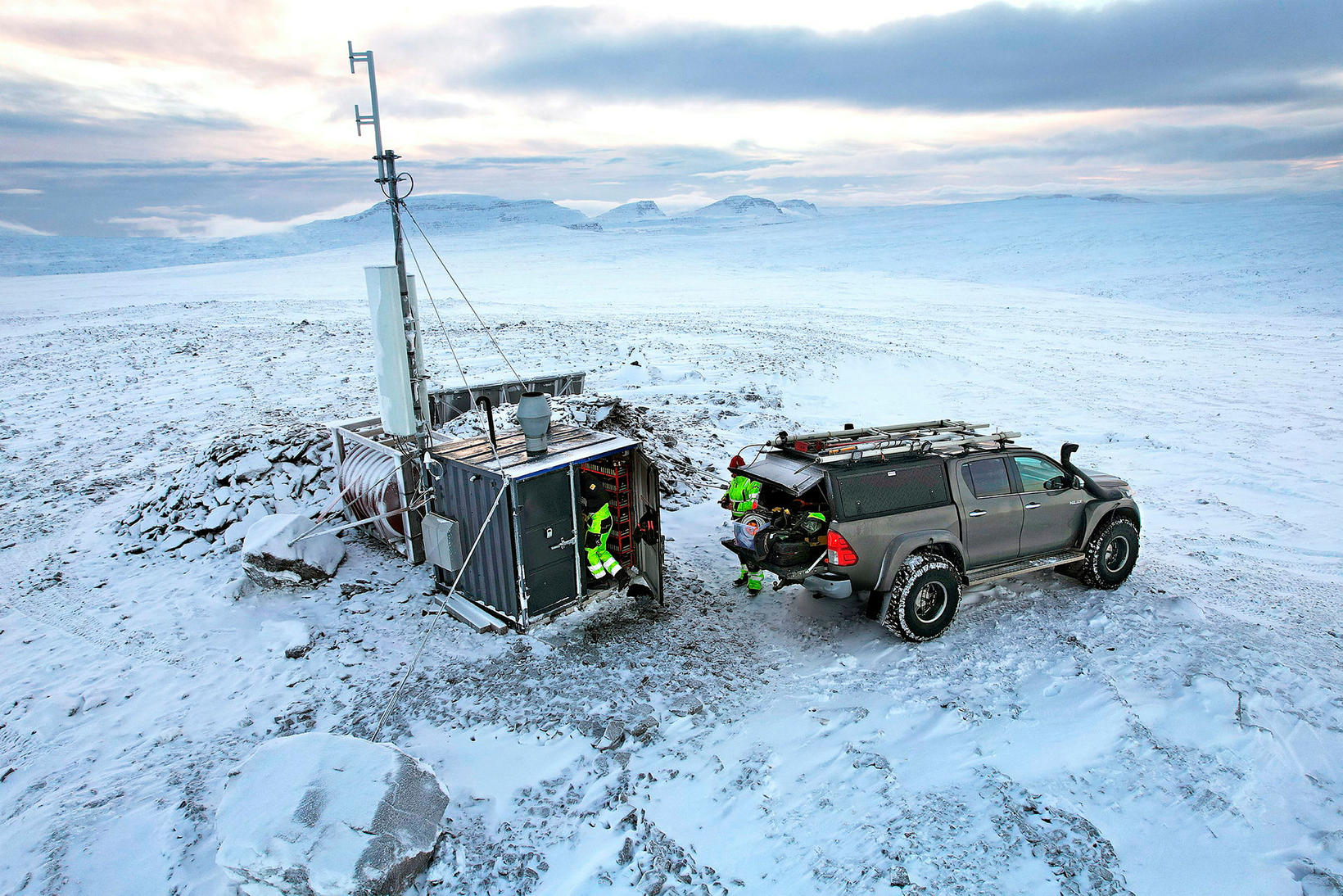Lack of mobile coverage in the Westfjords poses risk to tourists and residents
Most of the transmitters in the Westfjords need to be installed to complete the development. mbl.is/Neyðarlínan
Sections of road in the Westfjords remain without mobile or internet connection, raising serious safety concerns—particularly for foreign tourists unfamiliar with the region. In some cases, travelers have had to rely on nearby residents for assistance after accidents or breakdowns in remote areas where they were unable to call for help.
According to Aðalsteinn Óskarsson, Regional Development Manager at the Westfjords Office, the issue has become more urgent following news that funding shortfalls will delay the development of the mobile network on main roads by two years.
Delays due to underfunding
The company Öryggisfjarskipti ehf., which is responsible for overseeing secure telecommunications infrastructure, is reportedly underfunded, forcing a postponement of the mobile network buildout originally slated for completion by the end of 2026.
“We now believe it is necessary to postpone the development of the mobile network on the country’s main roads by two years,” said Óskarsson, demanding clarity from the Minister of Justice on why budget allocations have not been made to complete the work on schedule.
Greatest risk for tourists
The lack of connectivity is particularly dangerous for international visitors unfamiliar with Iceland’s winter conditions and infrastructure.
“Many tourists visiting the Westfjords for the first time aren’t aware of where the mobile signal drops off,” Óskarsson said. He added that while road infrastructure has improved in recent years, gaps in mobile coverage remain a serious bottleneck.
The Telecommunications Authority of Iceland announced in April that, due to lack of available funding for the trunk road security network, the target completion date would be extended to 2028.
Systemic concerns and accountability
Telecom providers Nova, Síminn, and Sýn were previously awarded frequency licenses with strict conditions for ensuring coverage on main roads, connecting routes, and in the highlands. The state-owned Öryggisfjarskipti, in collaboration with Neyðarlínan, was tasked with coordinating infrastructure installation, including identifying sites and working with municipalities and landowners.
“In short, Öryggisfjarskipti was responsible for site selection and construction of sheds and antennas. The telecom companies would then install transmitters and equipment,” said Óskarsson.
But in the 2025 budget process, no funding was allocated to Öryggisfjarskipti, and attempts to get answers from the Ministry of Justice have been unsuccessful. “It’s completely inexplicable,” he said. “There’s no explanation for why the plan was abandoned.”
Deepening the disparity
The Westfjords already suffers from the shortest winter service hours in Iceland, particularly in Steingrímsfjarðarheiði and Klettháls. Under current regulations, priority is given to commercially active areas, and road traffic volume often determines where resources go.
“When there are 200 kilometers between Súðavík and Hólmavík, or between Patreksfjörður and Búðardalur, we’re pushed to the bottom of the list,” Óskarsson said. He noted that road service is often halted in the evening, meaning travelers are not only out of reach of assistance but completely disconnected if they encounter trouble.
“In places like Klettháls and around Súðavíkurhlíð, winter services stop early, and people are left without communication. Flooding can occur with little notice.”
Iceland’s reputation at risk
“This is an unacceptable situation,” Óskarsson said, pointing out that Iceland’s growing popularity with tourists also increases the risks. In 2027, major road projects are expected to be completed, making the Westfjords accessible year-round.
“Traffic will increase, but tourists won’t realize that winter service stops at six in the evening in some places. If something happens, they won’t be able to notify anyone—and that’s the real danger.”
He warned that delays could have serious consequences. “You don’t want to imagine the worst, but Iceland’s reputation is on the line if someone is hurt because coverage was postponed for budgetary reasons.”
Market vs. safety
The Telecommunications Authority has stated that Security Communications will continue to lead planning and site selection but will no longer serve as an investor in the project. Óskarsson expressed concern that this shift gives more influence to private telecom companies, whose decisions may prioritize commercial interests over public safety.
“When funding decisions are driven by market logic instead of safety, rural regions like the Westfjords are left behind,” he said.








